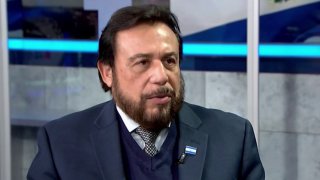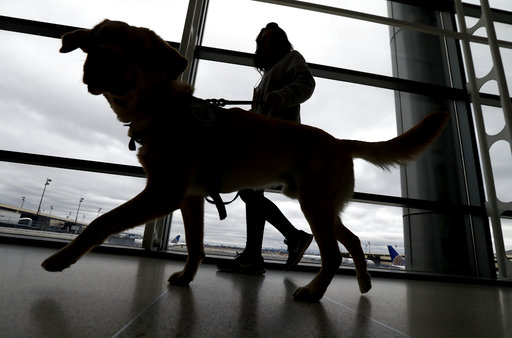
This story first appeared on Telemundo 44. Puedes leer y ver el video en Español aquí.
The vice president of El Salvador, Félix Ulloa, praised the new system that allows Salvadorans abroad to cast their vote this presidential election period, which began on Saturday, in an exclusive interview in Spanish with our sister station Telemundo 44.
“The democratic and electoral process has evolved so much that for the first time, the diaspora’s fundamental human right to vote is being recognized,” he said.
The country’s Supreme Electoral Tribunal launched a webpage so that its citizens could exercise their right to vote using their national ID cards (known in Spanish as Documento Único de Identidad, or DUI). The portal will be available until Feb. 4 when the elections will also take place in El Salvador.
We're making it easier for you to find stories that matter with our new newsletter — The 4Front. Sign up here and get news that is important for you to your inbox.
Ulloa is currently on six-month leave along with President Nayib Bukele, after the Constitutional Chamber of the Supreme Court allowed them both to seek a second term in office, a controversial move given that the country’s constitution prohibits the reelection of a president.
For instance, article 154 states: “The presidential term will be five years and will begin and end on June 1, without the person who has held the presidency being able to continue in their functions even one more day.”
But another part, article 152, reads: “The following people may not be candidates for President of the Republic: 1.- Those who have served as President of the Republic for more than six months, whether consecutive or not, during the immediately preceding period, or within the last six months prior to the beginning of the presidential term.”
U.S. & World
The day's top national and international news.
When questioned on this matter, Ulloa said there was a difference "between an immediate election and a second term, [the latter of] which is what is allowed in the Constitution."
Ulloa explained that if after his six-month break, the president loses the election, “he returns to office and finishes his term and then hands it over to the winner. If he wins, well, he waits until the day of the inauguration on June 1.”
In regards to security, Ulloa doubled-down on the effectiveness of the state of exception (or state of emergency), which was extended for a 22nd time on Tuesday.
Additionally, he invited organizations that decry human rights violations under the measure “to make their report from inside El Salvador”.
His remarks follow an investigation published by Human Rights Watch, which reports having documented more than 1,000 cases of serious human rights violations in El Salvador, including arbitrary arrests, torture, lack of due process, breaking and entering, threats, police harassment, ill-treatment, and cruel or degrading treatment.
Ulloa responded that some of these organizations have allegedly not visited the country to make these reports.
"It's a shame because it calls into question the defense of human rights, and really they are bureaucrats who live off of doing that, but they are not really on the front line of defending human rights," he stressed.
Ulloa added that the government’s crackdown on gangs has allowed economic development in the country.
“Security is something that people are starting to enjoy and the economy is starting to flourish. Before, there was a beauty salon or a mechanic shop, and you’d find a gang member,” he said.
Moreover, Ulloa anticipates that Bukele’s administration would seek to combat corruption during a potential second term.



